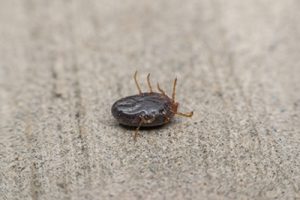 NEW CITY, NY – – Rockland County Executive Ed Day and County Health Commissioner Dr. Patricia Schnabel Ruppert caution Rockland residents and visitors about the continued importance of taking measures to protect against ticks, as a new tick species, the Haemaphysalis longicornis tick, commonly known as the “longhorned tick,” has been found in New York State including in Rockland County.
NEW CITY, NY – – Rockland County Executive Ed Day and County Health Commissioner Dr. Patricia Schnabel Ruppert caution Rockland residents and visitors about the continued importance of taking measures to protect against ticks, as a new tick species, the Haemaphysalis longicornis tick, commonly known as the “longhorned tick,” has been found in New York State including in Rockland County.
“Taking steps to protect yourself, your children and pets against ticks is the best way to prevent tick bites and tickborne diseases. It is encouraging that the same steps that protect against deer ticks are also effective against the longhorned tick,” said Dr. Ruppert.
New York State Department of Health research scientists collaborated with researchers at Fordham University and at the Lyme Disease Diagnostic Center of New York Medical College to identify these ticks. The identifications were confirmed by the Rutgers University Center for Vector Biology and the United States Department of Agriculture (USDA).
While the longhorned tick has transmitted disease to humans in other parts of the world, more research is needed to determine whether this can happen in the United States. Regardless, New Yorkers should continue to take steps to protect themselves, their children, and their pets against ticks and tickborne diseases that are present in Rockland County and throughout the State.
The longhorned tick is not native to the United States and is commonly found in Australia, New Zealand and eastern Asia. However, these ticks have been found recently in New Jersey, Virginia, West Virginia, North Carolina and Arkansas.
Tick Prevention Tips:
While hiking, working, or spending time in wooded areas:
- Wear long pants and long-sleeved shirts to protect against ticks other biting insects.
- Check for ticks often while outdoors and brush off any ticks before they attach.
- Perform a full body check multiple times during the day, as well as at the end of the day to ensure that no ticks are attached.
- Consider use of repellents containing DEET, picaridin or IR3535, following label instructions.
If you have been bitten by a tick of any kind, contact your health care provider immediately if you develop a rash or flu-like symptoms.

You must be logged in to post a comment Login